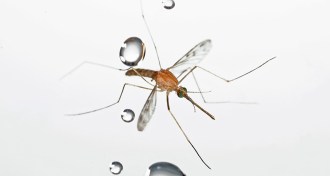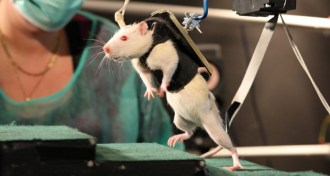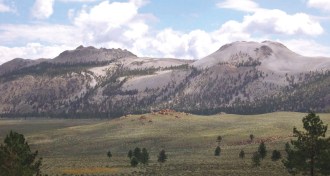News
-
 Animals
AnimalsHow a mosquito survives a raindrop hit
Lightweight insects can ride a water droplet, as long as they separate from it before hitting the ground.
By Susan Milius -
 Life
LifeAncient birds wiped out huge insects
Competition in the air trumped the advantage of extra atmospheric oxygen.
By Devin Powell -
 Life
LifeAntiaging protein helps set daily rhythms
Changing levels of sirtuin in the brain alter activity patterns in mice.
-
 Chemistry
ChemistryFlerovium and livermorium debut on periodic table
New element names honor the contributions of Russian and American laboratories.
-
 Humans
HumansStone Age art gets animated
Cave paintings and decorated disks provided moving experiences in ancient Europe.
By Bruce Bower -
 Physics
PhysicsQuantum teleportation leaps forward
Two teams report beaming information about particles over long distances, a step toward creating satellite quantum communication networks.
-
 Astronomy
AstronomyMilky Way will be hit head-on
The Andromeda galaxy is destined to slam directly into ours, new observations from the Hubble Space Telescope show.
-
 Genetics
GeneticsPoppies make more than opium
A 10-gene cluster controls the flowers’ production of a valuable cough suppressant and antitumor compound.
-
 Life
LifeTreatment helps paralyzed rats walk
A combination of drugs, electrical stimulation and therapy can restore lost connections between lower limbs and brain.
-
 Life
LifeBlue-green algae release chemical suspected in some amphibian deformities
Retinoic acid levels high in waterways rich in cyanobacteria blooms.
By Susan Milius -
 Earth
EarthSupervolcanoes evolve superquickly
Huge underground chambers of magma appear and erupt within just several centuries, a study of California rocks suggests.
-
 Chemistry
ChemistryYoungsters can sniff out old people’s scent
Body odor changes detectably with age, becoming mellower in men and not at all offensive in either sex — even to young people.